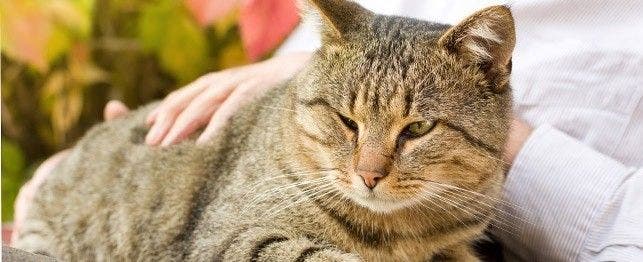
Golden Years: Caring for Your Senior Cat
In many ways, age is just a number for your cat.
Cats tend to age gracefully, living longer and more active lives today than ever before. At times, the “nine lives” proverb doesn’t seem all that far-fetched. The average feline lifespan ranges from 14-18 years and growing, with some cats living well into their twenties.
And yet, as is the case with all living things, age ultimately does catch up with every feline. Sooner or later, Father Time interjects and a senior cat invariably slows down, becoming vulnerable to the effects of aging.
As a cat owner, it’s important to familiarize yourself with the aging process your feline will experience so that you can provide support along the way. Here’s our guide to providing adequate care for your elderly cat to ensure his golden years shine brightly.
Living with A Senior Cat
Try as they might, cats cannot escape the effects of senior citizenship. Although they age gracefully, a 12-year-old cat is considered the equivalent of a 64-year-old human – and this ratio increases with each passing year. You’ll enjoy your feline friend’s companionship for many years, but age always wins out in the end.
The first visible signs of aging within senior cats often arise from sagging skin due to lost elasticity and degenerating muscles resulting in weight loss. Enduring decreased sensory perception, your senior cat may eventually have diminished ability to hear and taste. Consequently, you may need to call to your feline more loudly and creatively urge him to eat.
The advent of cat senior citizenship requires various additional actions on the part of the owner. In addition to scheduling regular veterinary checkups, you should consider bringing an outdoor cat inside for safety purposes and switching to a softer food that enables a cat with missing teeth or dental issues to still chew effectively.
Behavior of a Senior Cat
Based on an average cat lifespan of 14-18 years, a feline reaches senior citizenship at the three-quarter mark – or at approximately 11-13 years of age. During this time, you will encounter significant behavioral changes within your senior cat.
Like people, older cats become less active mentally and physically. In some respects, the situation is not unlike having a grandparent in your home. Normal aging changes related to cognitive decline can include any or all of the following:
- Being less active
- Playing less
- Sleeping more
- Reacting less to surrounding events
- Grooming less
- Eating less heartily
How Age Affects Your Cat
Try as they might, felines simply can’t stay forever young. Both physically and mentally, changes are in store once a cat’s age reaches double digits. From a physical standpoint, all organ systems throughout the body will undergo some structural and functional change. An elderly cat’s cardio-respiratory, musculoskeletal, and central nervous systems each become more susceptible to disease and failure over time, necessitating an increased veterinary presence.
That said, aging has never been a fair game and never will be. It certainly doesn’t affect all cats of a certain age in precisely the same way. Whereas some cats remain active with no noticeable physical or mental limitations even at age 15, other felines aren’t able to age as slowly and successfully.
Grooming Your Senior Cat – Special Concerns
Most cats devote a large portion of their livelihood to achieving proper grooming. However, an elderly cat may require some assistance in this regard. Older cats tend to groom less frequently and can develop skin conditions that require extra attention.
By assuming a more active role in keeping your cat clean, you can monitor for any changes in skin and coat that may signal a medical problem. Check for lumps and bumps both on and underneath the surface of your senior cat’s skin, and seek an appointment with your veterinarian to ensure any found skin abnormality doesn’t pose the threat of being a tumor.
Thankfully, there are products available making it easier to provide grooming assistance to your senior cat. Everything from plastic-tipped brushes to waterless shampoos can aid this process.
Common Disorders of Senior Cats
Even if your cat ages like wine, he’s bound to encounter age-related diseases at some point. Here are some of the most commonly diagnosed illnesses known to afflict older cats:
- Nutritional concerns: Obesity represents a serious concern in older cats, as it’s a common problem that’s often linked to other complications like diabetes and liver disease.
- Dental disease: Without proper treatment, this can result in tooth loss and the development of infection that can spread to other parts of the body.
- Heart disease: The most common heart disease in senior cats is hypertrophic cardiomyopathy, which involves an enlargement and weakening of the heart muscle. Early detection and proper treatment can slow the progression of this disease.
- Cancer: While cancer poses a significant risk for senior cats, a number of treatment options exist, including surgery and chemotherapy. As a result, not all cat cancers prove fatal.
We all hope to age gracefully, and we should expect no less for our feline friends. When you take a proactive approach to assisting your cat’s journey through senior citizenship, you can enhance and elongate his all-important golden years.
Resources for Senior Cats
Want more useful advice regarding caring for your aging cat? Check out our featured articles: